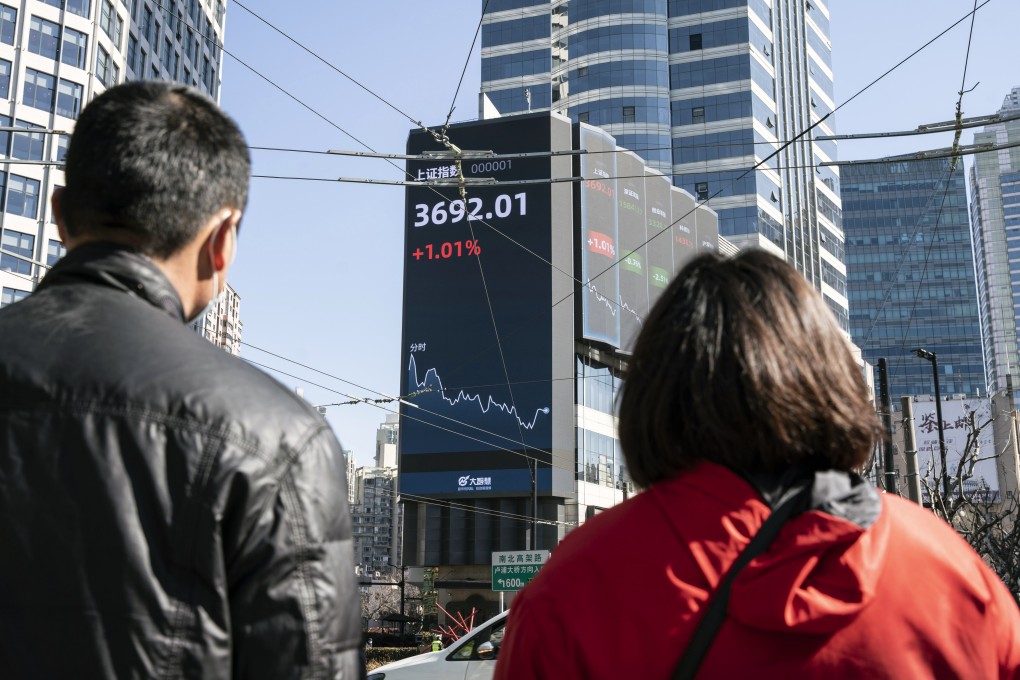China’s mutual funds earn zero as rotation, market clampdown batter returns with managers loading up defensive ‘real assets’
- Buying value stocks proves to the most successful strategy on China’s markets now, while T. Rowe Price favours ‘real assets’ as global inflation hedge
- Money managers from HSBC Jintrust and Aegon-Industrial Fund are still cautious on markets as stocks face key technical bull-bear signal

China’s 20 trillion yuan (US$3.07 trillion) mutual fund industry is among the casualties in the current chill. The median returns of mutual fund products have fallen to zero from a high of 10.7 per cent in mid-February, according to Citic Securities. Their top 100 holdings have swung to a 1.6 per cent loss from an 18.3 per cent gain, it added.
“The bets on the technology giants may still face pressure in the short term,” said Gao Jingdong, an analyst at Shanxi Securities International. “China’s move to get tougher on the monopolistic practices and sprawling capital expansion, coupled with the lofty valuations of the tech stocks, will continue to drag down share prices.”
The CSI 300 Index has tumbled 11.4 per cent since reaching an all-time high on February 10, with 2020’s favourites like distiller Kweichow Moutai and battery maker Contemporary Amperex Technology sliding hard. Among small-cap tech stocks in Shenzhen, the ChiNext Index has slumped 19.2 per cent.
